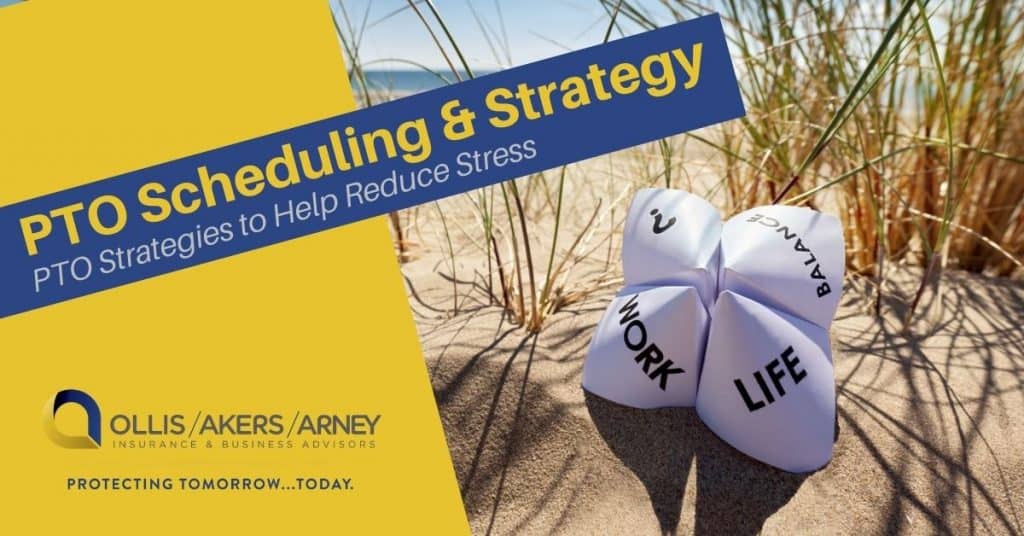Summer is right around the corner and with it are thoughts of using some of our PTO for getaways and family vacations. As much as we look forward to taking some much-needed time off, it can also add stress that takes away some of that enjoyment. To help manage those additional tasks we have created a checklist that will offer some strategies to making planning PTO less stressful.
PTO Strategies to Help Reduce Stress
Pre-Vacation
- Prioritize items you would like to complete a couple of weeks prior to vacation
- Make sure your team and your backup knows your schedule
- Include your upcoming time out of the office on your email signature
- Establish rules for backup (what will they help with?)
- Clean up your workspace; seeing clutter when you return can increase stress
- Make sure your out of office message is clear
- Put a return date a day later than your actual return date to reduce phone calls and urgent items on your first day back
During Vacation
- Be intentional about unplugging
- Limiting use of technology makes it more likely you will enjoy and appreciate time off
- Try to spend time in nature, enjoying fresh air and activities. Most people find that spending some time this way helps them to end up feeling much more relaxed at the end of a vacation.
Post-Vacation
- Make a plan. Spend the first 30 minutes of your return to prioritize what you have coming up for the week. Consider doing this before you check your inbox.
- Piece through what’s on your plate and enact a strategy to help increase productivity and reduce stress
- Check-in with backups or key people to discuss what you missed and what needs your urgent attention
Additional PTO Strategies
- A three-day weekend may help reduce stress levels at work far more effectively than a long vacation. Taking a Friday or Monday off to extend the weekend every once in a while, has become an increasingly popular, and possibly even better, way to reduce burnout.
- One day in the middle of the week (idea is that most things can wait 1 day, fully unplug)
- Half-day after coming back (example: a Monday morning) for just catching up on emails.
No phone calls or other meetings - Knowing who is going to be out is helpful to reduce communication with them during their time out of the office
- Consider sharing a weekly Out of the Office calendar with your entire organization
- Consider working from home the day you return after vacation. This may allow for fewer interruptions and a more effective start to your return to the office.
Get Assistance
For more help or information on PTO planning or other benefits offerings, contact Ollis/Akers/Arney.


